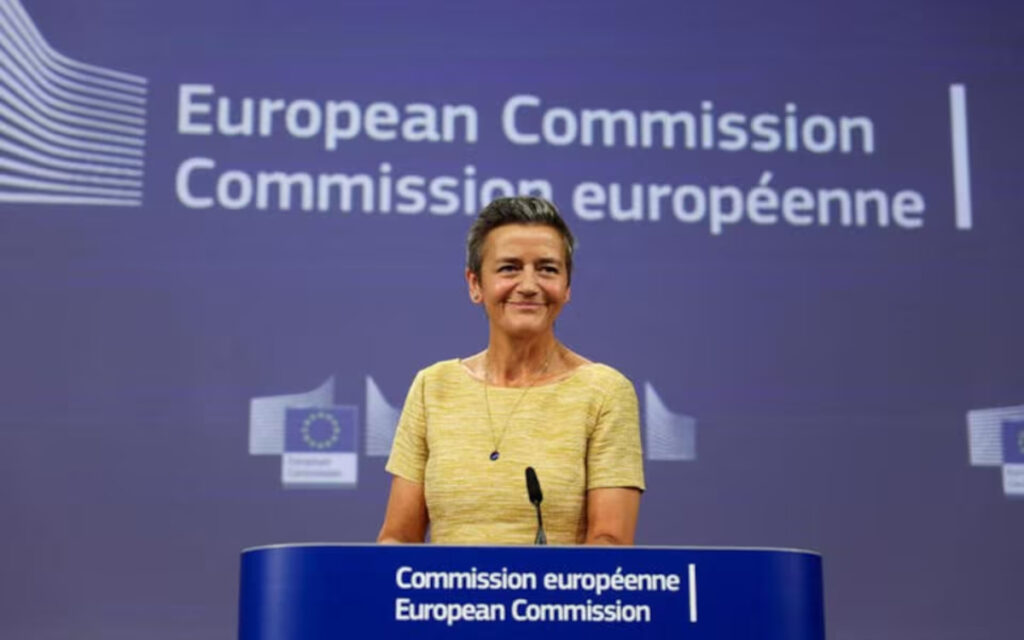Brussels: EU antitrust chief Margrethe Vestager achieved significant victories on Tuesday as Europe’s top court upheld her actions against Apple’s Irish tax arrangement and Google’s anti-competitive practices in two landmark cases. Vestager, who will end her term in November, has gained prominence for targeting Big Tech’s tax practices and efforts to suppress smaller competitors. These court victories may set a precedent for her successor to pursue similar strategies.

Vestager celebrated the rulings, stating, “Today is a huge win for European citizens and tax justice,” on X (formerly Twitter). She also hailed the judgment against Google as a major achievement for digital fairness.
In 2016, the European Commission ordered Apple to pay €13 billion ($14.4 billion) in back taxes to Ireland. The Commission found that the iPhone maker benefited from two Irish tax rulings over two decades, which had artificially lowered its tax rate to as low as 0.005% in 2014. The Luxembourg-based Court of Justice of the European Union supported Vestager’s decision, affirming that Ireland granted Apple unlawful aid that must be recovered. The court noted that Apple’s Irish units received favorable tax treatment compared to other resident companies that did not benefit from such advanced rulings.
Apple expressed disappointment with the ruling, asserting that it had paid $577 million in taxes, aligning with Ireland’s tax laws from 2003-2014. The company argued that the European Commission was retroactively altering the rules and disregarding that its income was taxed in the U.S. as per international tax laws.
Ireland, known for its attractive tax rates that drew Big Tech firms, had also contested the EU ruling, asserting that its tax treatment of intellectual property was consistent with other OECD countries. Despite this, Ireland has participated in global corporate tax reforms and abandoned its long-held 12.5% corporate tax rate, although its tax revenue from multinationals has increased.
In addition to the Apple case, the Court rejected Google’s appeal against a €2.42 billion fine imposed by Vestager seven years ago, the first of three substantial fines for anti-competitive practices. The court ruled that Google’s actions were discriminatory and not consistent with competitive market practices. Google expressed disappointment with the ruling, noting that it had made changes in 2017 to comply with the European Commission’s decision.
Also Read | Google Loses Appeal Against $2.7 Billion EU Antitrust Fine
Over the past decade, Google has accumulated €8.25 billion in EU antitrust fines. It continues to challenge two rulings related to its Android operating system and AdSense advertising service and is awaiting decisions on these matters. The company is also contesting EU antitrust charges from last year that could force it to divest part of its lucrative adtech business due to allegations of favoritism towards its own advertising services.
Also Read | SpiceJet Announces $40 Million Lease Arrears Write-Off by Carlyle Aviation
Both rulings are final and cannot be appealed. The cases are C-465/20 P Commission v Ireland and Others and C-48/22 P Google and Alphabet v Commission (Google Shopping). Investigations are ongoing into other corporate tax arrangements, including those involving IKEA’s Dutch tax deal, Nike’s Dutch tax agreement, and Finnish packaging company Huhtamaki’s Luxembourg tax arrangement.



